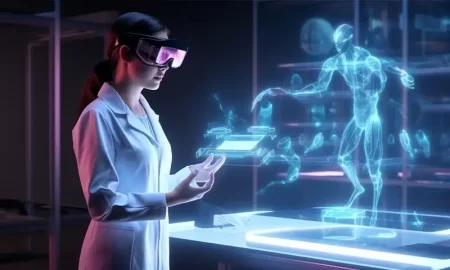Ratan Tata
Ratan Tata, a name one would associate with vision and initiative, has indeed transformed the business scene in India, if only to leave an indelible mark on it. His story could begin with him being called to take over the family business, the great Tata Group, as he had tried to build a global empire out of it. It is under this leadership that Tata evolved not only in its geographical operations across the globe but also raised the standards of good practices, technical advancement and social responsibility. Let us further understand how Ratan Tata changed the notion of leadership and foresight in the growing corporate sector in India.
A Legacy of Leadership
In 1991, when he succeeded J. R. D. Tata in heading the Tata Group, Ratan Tata took charge of the Tata Group in 1991 at a time of great economic difficulty in the country. Tata Group evolved as a transformative phenomenon under his stewardship, making a tremendous leap from being a regional behemoth to a global presence with operations in more than 100 countries. When women and men spoke about him they spoke about a man with a vision, but also a man who practised what he preached in all business dealings. Ratan Tata had a wider vision than simply profit maximization; he was interested in building long-term value in regard to all of the company’s stakeholders, employees and the society as a whole.
The Influence of New Ideas
Pioneering new concepts became the hallmark of Ratan Tata’s tenure. One of the most defining moments of Indian innovative approach during his leadership was the launch of Tata Nano – the cheapest car in the world. Touted as the first ever ‘one million unit’ car launched in 2009, the Tata Nano targeted the vast Indian populace, who according to Tata were just over a two wheeler without a car. Even though the car lost the battle of the markets, it was a testament of how far status quo could be defied with Impossible being Nothing stamped on it.
In Tata’s Ratan management, the Tata Group had also modernized significantly in other technological aspects like software development with Tata Consultancy Services (TCS) emerging as a top notch IT giant. Ratan Tata comprehended that innovation was not only about new offerings in the market but also a way of beating the market with emerging technologies.
Global Expansion and Strategic Acquisitions
The strategic vision of Ratan Tata was not only limited to India. He was the chief architect in the globalization of Tata Group, due to many landmark acquisitions made over the years. The most prominent among these includes the acquisitions of Jaguar Land Rover (JLR) in 2008 and Corus Steel in 2007. These daring straegic initiatives not only pushed Tata Group to the world stage but also convincingly proved the point on Tata’s entrepreneurial appetites.
It was Ratan Tata’s vision that every company acquired by Tata would be absorbed into the Tata Group, which meant that the Tata Group was not just an Indian conglomerate but a transnational corporate entity. His focus on international mergers and collaborations changed the image of Indian companies in the world.
Ethical Leadership as a Virtue Ethos
Unlike many business executives, Ratan has been strongly ethical in all business practices that he has participated in. In the course of his professional life, he fostered the belief of openness, corporate governance, and social involvement. It is also the period in which the Tata Group under Ratan’s leadership earned the good name of all business practices in the world and was known to treat both employees and customers quite fairly.
Ratan Tata has always been a firm believer in the concept of ethical stewardship. In fact, these social outreach efforts can be said to even rival his business accomplishments. In conjunction with the Tata Trusts, one of India’s oldest philanthropic foundations, Ratan Tata has been active in sectors such as healthcare, education, and rural development. Such concentration on growth without exclusion, has led even other business leaders in India to follow his footsteps on corporate social responsibility.
Leading Through Crisis
The trials of leadership are omitted in the serenity of normal operations but greatly come to test the leaders in Ratan Tata’s case he has remarkably climate all storms of leadership. The first was during the global financial meltdown that happened in 2008, where while many nations were experiencing economic turmoil, the Tata Group did not shrink its activities, avoided major layoffs, and most importantly did not suffer any financial losses.
Ratan Tata’s leadership experienced another evaluative moment when following the terrorist attacks in Mumbai on December 26, 2008, Tata group’s owned Taj Mahal Palace Hotel was also targeted. Ratan Tata as opposed to merely wishing for the financial profits of the hotel to increase, concentrated on the victims and families instead and made sure the hotel was rebuilt as a tribute.
Championing Young Talent
Ratan Tata – A Consistent Promoter of Nurturing Young Talent Embracing and championing the youth has always been Ratan Tata’s concern. In fact, he had a rather unique way of exercising authority. Here he actively encouraged the youthful innovators—or the entrepreneurs, to try their hand at reckless activities in following their passions. When he, in 2012, decided to retire from his role as the chairman of the Tata Group, Ratan Tata took the evolution stage of the Tata innovation group, but as an angel investor in many Indian startups. He has given such support to many young entrepreneurs in India that made them credible and visible.
The Dream of Sustainable Development
It is not only about business profits or acquisitions on a global scale that Ratan Tata’s leadership is about; he has always been a proponent for sustainable development. As the head of the Tata Group, he did not just take the group to new heights of business gains, but also made it the most natural resource and energy efficient group in India, expanding its focus on green technologies, renewable sources of energy, and sustainability practices. It is with this commitment to sustainable development in mind that the Tata Group has embraced green initiatives in its diverse operational sectors.
The Indian Corporate Paradigm Shift
Ratan Tata’s leadership has been strongly felt in Indian corporates. The focus on values, creation and social responsibility has motivated several Indian organizations to work towards developing a cleaner and more responsible business culture. He helped in raising the bar for corporate governance and demonstrated that businesses could be successful without sacrificing principles.
Humility in Leadership
Notwithstanding the overwhelming success that he has had, Ratan Tata, has achieved, one of the most humble and down to earth business leaders across the globe is him. He is said to possess a quiet and humble disposition which has for several parts of the world including India won the hearts of million of people. The humility that Ratan Tata displays is a strike to the thesis that Leadership makes one powerful and successful, but rather that’ it is for the respect of serving others’ that great leaders arise.
Conclusion
There hasn’t been any leader or innovator like Ratan Tata in Indian business history. Thanks to his visionary leadership, love for innovation, and business ethics, he has also changed the meaning of leading a business in the 21st century. The life history of Ratan Tata goes to show that leadership is not only about giving profits to shareholders but creating value for the entire society. Even in the ages to come, his guidance will encourage many more leaders and entrepreneurs especially in India and the world.












